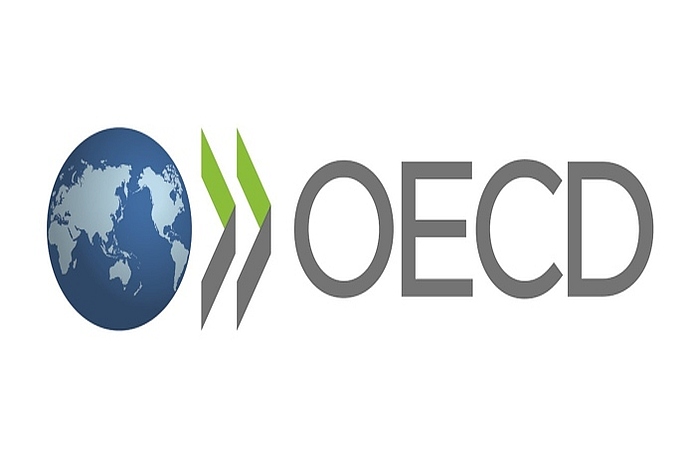Tax and fiscal policy in response to the coronavirus crisis: Strengthening confidence and resilience.
Executive summary – Immediate measures have supported business cash-flow, household income, and employment.
Many governments’ economic policy responses have been rapid and extensive. The fiscal packages so far have aimed at cushioning the immediate impact of the sudden drop in economic activity on firms and households, and to preserve countries’ productive capacity. While there are large variations in the size of fiscal packages, most are significant, and some countries have taken unprecedented action. Getting the support to where it is most urgently needed, including to small and medium-sized enterprises, nevertheless poses significant administrative challenges.
Maintaining business cash-flow has been a core goal of the fiscal policy measures that have been introduced, supported by monetary and financial policies. Measures have included extending deadlines for tax filing, the deferral of tax payments, the provision of faster tax refunds, more generous loss offset provisions, and some tax exemptions, including from social security contributions, payroll taxes or property taxes.
Countries have also implemented wide-ranging measures to help businesses retain their workers through short-time work schemes or wage subsidies. There is evidence, from policies implemented in the wake of the global financial crisis, that keeping people in work through such schemes is an effective way of providing income support and limiting job losses while avoiding costly search and matching processes as recovery progresses.
Income support to households has been extended in many countries, generally through targeted cash benefits rather than through tax cuts, given the need to deliver support quickly. There are also instances where access to sick-leave benefits has been eased and eligibility expanded, with several countries broadening the coverage of unemployment benefits to self-employed workers in particular.
Policy during containment and mitigation should protect household income and employment, and keep businesses afloat.
As containment and mitigation measures continue, further adaptation to fast-changing circumstances will be key. Tax policy should continue to focus on limiting hardship while maintaining the ability for a quick rebound. This phase calls for fine-tuning and potentially expanding the set of policies already implemented. The costs of policy action may be high, but the costs of inaction are likely to be greater.
Protecting household income and employment remains essential during containment and mitigation. This phase may extend over time, which would increase the need for policy support as the impacts on households and businesses become longer and more widespread. There may be a case for extended wage and income support from governments. Particular consideration should also be given to the self-employed and workers in the informal sector.
Businesses are increasingly exposed to solvency risks in addition to liquidity risks as the crisis continues. Policies should adapt to the changing nature of risks and could include extending deferrals, expanded loss carry-backs which help loss-making firms, and accelerated VAT refunds. The design of these measures should avoid increasing non-compliance risks.
Tax support should be targeted to those that need help the most. While administratively costly, targeting may help improve outcomes over time by allowing stronger support where the need is most pressing. Support can focus on the hardest-hit sectors. Small and medium-sized enterprises could be prioritised as they may be less able to withstand liquidity and solvency risks. Businesses, where employment risks are pronounced, could be targeted too, to limit adverse impacts on households and aggregate demand.
Fiscal stimulus may be required to shore up recovery after containment and mitigation.
Strong and sustained support will need to continue and evolve with the gradual recovery. Debt payments may lead to reduced consumption and investment. Supply shocks may also persist and productivity be reduced where containment and mitigation measures are prolonged or only relaxed gradually and partially. Where the recovery is anemic, there may be a case for maintaining expansionary fiscal policy for a sustained period to stimulate broader household consumption and business investment. The support measures can be reoriented towards this goal, rather than replaced by large public works.
Stimulus during the recovery phase needs to be carefully timed and well-targeted given potential differences in the timing of exit from containment and mitigation across sectors and countries. Efforts should be made to avoid locking parts of the economy in support mode where support is no longer needed while continuing to provide sustained liquidity and income support where still required. Stimulus should provide immediate incentives to spend, be credible and well-communicated to avoid further eroding confidence and resulting mostly in increased savings instead of consumption. Stimulus could also connect to longer-term policy objectives, including resilience to health risks, decarbonisation and other areas where positive spillovers exist.
Policy coordination will make stimulus even more effective. Countries least affected, and those with most room to act, could act strongly and create positive feedback loops through trade and investment links, providing a boost to the global economy, particularly since strengthening the ability of countries to respond to the health crisis will reduce the likelihood of flare-ups of the virus.
To be continued … Part 3 (Final)
Related: Part 1





